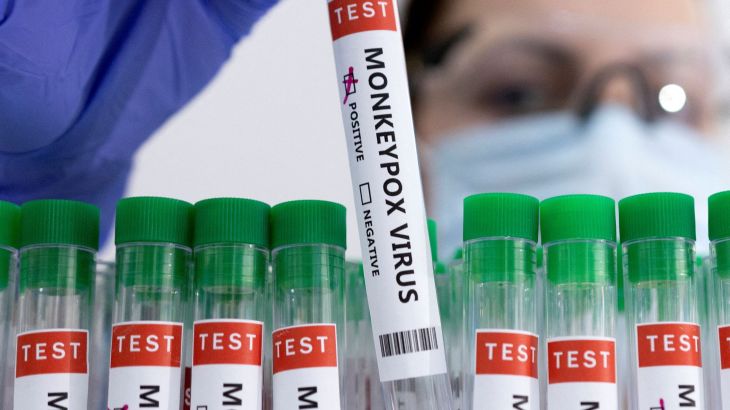
Monkeypox: Is enough being done to stop its global spread?
On Monday, July 11 at 19:30 GMT:
Global cases of monkeypox have risen to more than 8,000 in at least 57 countries, according to the US Centers for Disease Control and Prevention. Historically found in west and Central Africa, the monkeypox virus is now spreading to new countries, including those outside the continent. Since early May, most new cases have been reported in Europe, the US, and particularly among men who have sex with men.
Because new cases are predominantly affecting gay and bisexual men, health officials are worried that social stigma will hamper efforts to trace and contain the disease as people may be less likely to report their symptoms or discuss their sexual history.
Monkeypox is generally a mild viral infection, but it can be serious or even fatal for people who are immunocompromised or very young. It is transmitted through close contact and can be prevented with vaccines that are also used to inoculate against smallpox.
Global supply of those vaccines is scarce and the WHO is working with manufacturers to address the issue. In Africa, where monkeypox is endemic in 11 countries, the continent’s top public health agency expressed the hope that rich countries would not hoard vaccines, as they did with COVID-19 inoculations.
In this episode of The Stream, we’ll look at what’s being done to curb the spread of monkeypox.
On this episode of The Stream, we speak with:
Rosamund Lewis, @PeopleDocGeneva @WHO
World Health Organization
Benjamin Ryan, @Benryanwriter
Journalist
Yap Boum, @YapBoum2
Regional representative for Africa, Epicentre, MSF